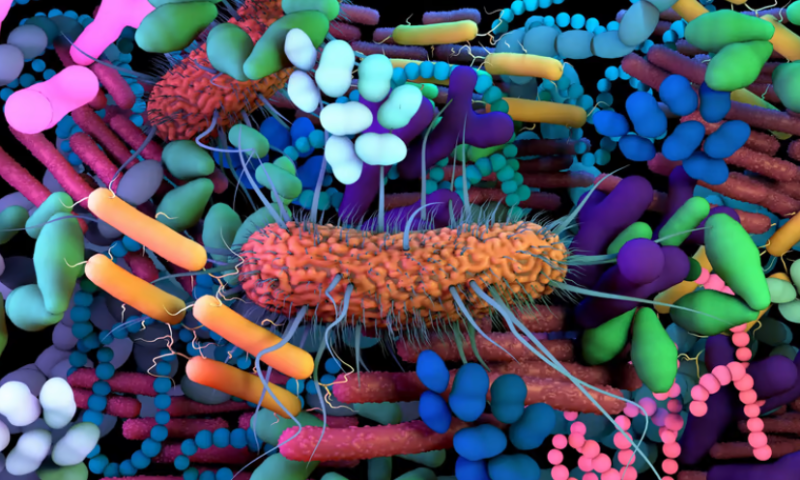Kaleido Therapeutics has faced the music. The microbiome-focused biotech is packing up shop after a dismal eight months of setbacks punctuated by its failure to find a buyer. All its remaining staff are out of a job.
The company announced the news in an SEC disclosure Friday morning, saying efforts to seek a “viable transaction” did not materialize. As a result, Kaleido said, it “cannot continue operations and believes that the best alternative is an orderly wind-down process.”
Along with all other remaining employees, CEO Daniel Menichella, CFO William Duke and CSO Johan van Hykckama Vlieg were axed. The company also notified NASDAQ that it’s hopping off the exchange.
It’s the final crescendo to what’s been a tumultuous year for the Flagship Pioneering-founded company focused on tapping the therapeutic potential of the body’s microbiomes. It’s difficult to nail down a starting point for its decline—which saw its shares drop from $14.90 in January 2021 to essentially nothing now—given the tumultuous biotech market last year. But undoubtedly, the wheels really started to come off after the FDA’s warning letter last August about its asset KB109.
In that letter, the agency said Kaleido was improperly running clinical trials for KB109 that it had never asked FDA to clear. Kaleido’s rationale was that KB109 was a food, not a drug, but the agency didn’t bite.
Kaleido was one of a number of companies looking to capitalize on the potential of the microbiome, a collection of bacteria, fungi and viruses that exist in humans. Finch Therapeutics has a lead candidate entering phase 3 for recurrent C. diff. Phase 2 results released in November 2021 found its oral treatment was a “clinical cure” in nearly 79% of patients. Summit Therapeutics’ microbiome-based C. diff treatment was found to be less effective in phase 3 data released last December, prompting the company to look for partnerships.
Web archives of the company’s pipeline show the company working on KB109 for COVID on September 13. By October 6, the candidate had disappeared from the list. Even then, the company had other uses of KB109 in store, namely for COPD, in addition to different med for ulcerative colitis.
But as the year came to a close, money was dwindling, and Kaleido reported during its November 2021 earnings call that it had only enough cash to survive until the second quarter of 2022.
To stave off fate, it cut staff in January. More bleak was its decision to end the COPD program. But at the time, the company said it still planned to pursue clinical development of the UC med, KB295, in the first half of this year. So much for that idea.
Realistically, barring a sale, the writing was on the wall for Kaleido. In the company’s annual report released earlier this month, it said that “given the strategic process we are running, our active development initiatives are extremely limited.”
Plus, the company’s accumulated deficit stood at a whopping $364.5 million at year’s end. Kaleido braced investors for the fact that efforts to find a buyer or financial alternative seemed likely to fail. “[W]e have identified conditions and events that raise substantial doubt about our ability to continue as a going concern,” the company said.
The brainchild of Flagship partner Geoffrey von Maltzahn, Ph.D., Kaleido was unveiled in 2017 after operating in stealth mode for two years. When it launched, Flagship CEO Noubar Afeyan, Ph.D., expressed high hopes for the company.
“These chemistries will fundamentally change the way we approach the microbiome as a druggable target in the body and redefine the way we treat and prevent serious illnesses related to the microbiome,” he said.

